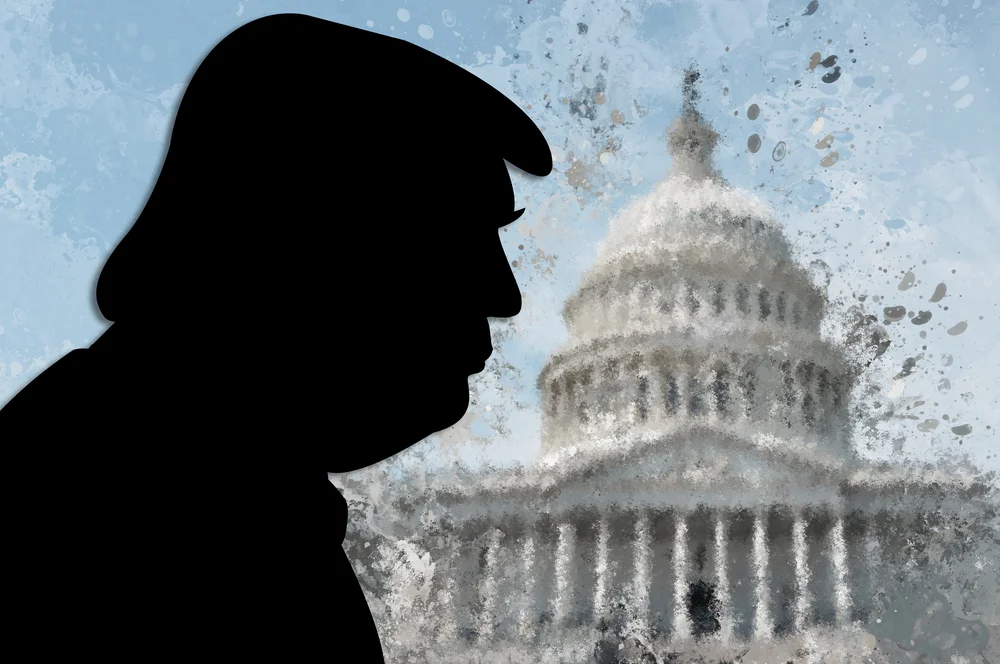
Trump Could Have a Strong Case to Revoke Harvard’s Tax-Exempt Status
Thanks to a 1983 opinion widely hailed by progressives at the time, the administration could be on solid ground.
In a recent Truth Social post, President Trump wrote: “Perhaps Harvard should lose its Tax Exempt Status and be Taxed as a Political Entity if it keeps pushing its political, ideological, and terrorist inspired/supporting ‘Sickness?’” This followed an earlier threat to cut off $9 billion in federal funding unless Harvard agreed to a list of administration demands for reforms, including merit-based hiring, an end to preferences in admissions based on “race, color, national origin, or proxies thereof,” an outside audit of “programs and departments that most fuel antisemitic harassment,” and the discontinuation of DEI. Rejecting these demands, Harvard declared that “antisemitism and discrimination of any kind not only are abhorrent and antithetical to Harvard’s values but also threaten its academic mission.” Since that exchange, it has been reported that the Department of Justice has asked the IRS to review and revoke Harvard’s tax-exempt status.
Thanks to a 1983 Supreme Court opinion widely hailed by progressives at the time, the Trump administration may have stronger grounds than at first appears to reconsider Harvard’s tax status. Harvard is a tax-exempt organization as an educational institution under Section 501(c)(3) of the Internal Revenue Code. Section 501(c)(3) exempts organizations “operated exclusively for religious, charitable, scientific, testing for public safety, literary, or educational purposes.” Tax-exempt status carries great advantages, because it frees Harvard from federal income tax and its donors can make tax-deductible contributions. Loss of the exemption would cost Harvard an estimated $500 million annually.
But the IRS can remove 501(c)(3) designation if the organization engages in conduct that violates “established public policy.” The Supreme Court recognized this public policy doctrine in Bob Jones University v. United States (1983). Bob Jones was a private Christian university that prohibited interracial dating and marriage based on its understanding of biblical teachings. The IRS concluded that Bob Jones’s rule violated fundamental national policy. Agreeing with the IRS, the Supreme Court found that the institution’s purpose “must not be so at odds with the common community conscience as to undermine any public benefit that might otherwise be conferred.” It concluded, “it would be wholly incompatible with the concepts underlying tax exemption to grant the benefit of tax-exempt status to racially discriminatory educational entities.”
Politics
.webp)
Liberal Democracy Reexamined: Leo Strauss on Alexis de Tocqueville
This article explores Leo Strauss’s thoughts on Alexis de Tocqueville in his 1954 “Natural Right” course transcript.
%20(1).webp)
Long Distance Migration as a Two-Step Sorting Process: The Resettlement of Californians in Texas
Here we press the question of whether the well-documented stream of migrants relocating from California to Texas has been sufficient to alter the political complexion of the destination state.
%20(3).webp)
Who's That Knocking? A Study of the Strategic Choices Facing Large-Scale Grassroots Canvassing Efforts
Although there is a consensus that personalized forms of campaign outreach are more likely to be effective at either mobilizing or even persuading voters, there remains uncertainty about how campaigns should implement get-out-the-vote (GOTV) programs, especially at a truly expansive scale.

Relief for Trump in Sight — If Supreme Court Special Session Reins in Rogue Judges
Nationwide injunctions have proven a disaster for the federal judiciary.

The Dangers of the Political Gender Gap
Young women and men are gravitating towards opposite political extremes, with potentially explosive consequences.

A Tariff Crisis Delayed, not Averted
Rapid policy change through the executive branch is incompatible with how our Constitution was designed to function.

Woke Despotism Meets the Counterrevolution
The turn against wokeness must be cemented in a durable political settlement that transcends executive orders.















